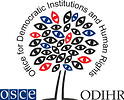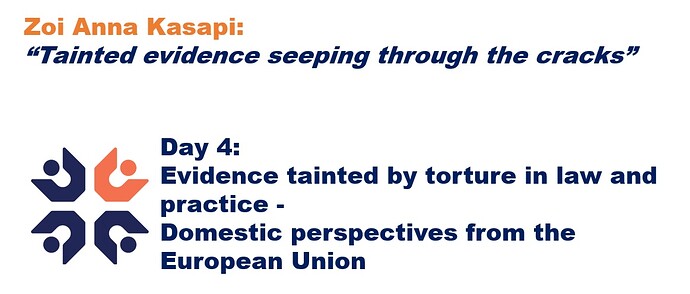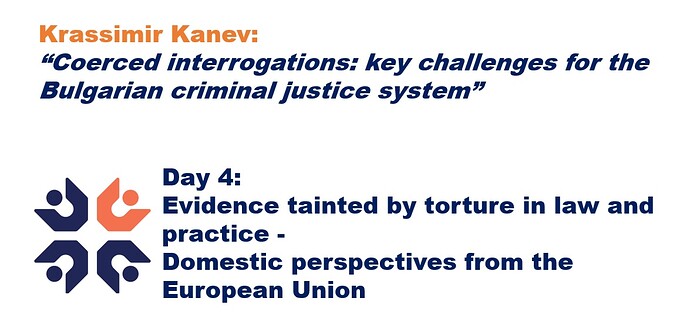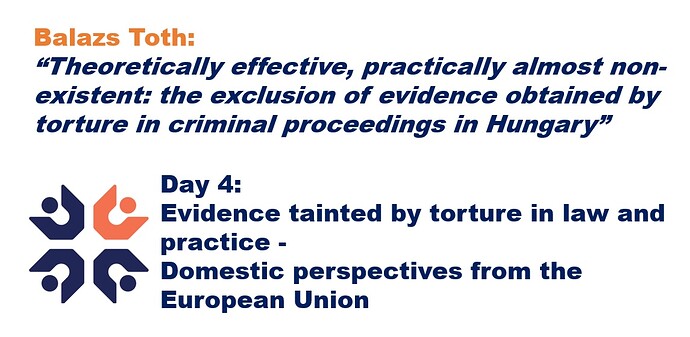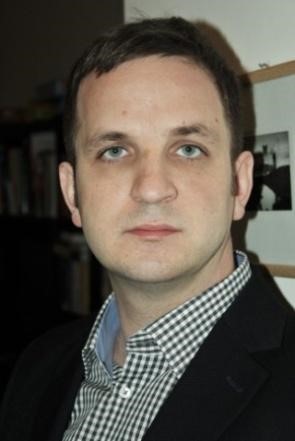Introduction
This blog attempts to analyse the legislative, practical, and policy factors linked to the observed culture of impunity within the Greek criminal justice and law enforcement system in cases involving alleged torture and ill-treatment perpetrated by police officers. By doing so, it will illuminate a potential path for tainted evidence to find their way into the criminal proceedings.
The legislative framework
The Greek legislative framework contains a number of provisions prohibiting torture and ill-treatment. As an European Union (EU) and Council of Europe Member State, Greece is subject to the relevant provisions of the EU Treaties, the Charter of Fundamental Rights, the relevant secondary EU law, as well as to the European Convention on Human Rights (ECHR) and the European Convention for the Prevention of Torture and Inhuman or Degrading Treatment or Punishment. Greece has also ratified the UN Convention Against Torture and its Optional Protocol, which establishes a system of regular visits to places of detention by independent observers.
In addition to the safeguards established in international and regional instruments, domestic laws prohibit torture and mandate the punishment of its perpetrators, starting with article 7 of the Constitution. The Criminal Code and the Code of Criminal Procedure contain specific provisions proscribing the use of torture, bodily harm, and intimidation by officers of the law conducting investigations (whether civilian or military), as well as the use of evidence obtained in such manner in criminal proceedings.
Despite the existence of the above safeguards, the Greek legislative framework has been criticised by both the Council of Europe Committee for the Prevention of Torture (CPT) and the UN Committee Against Torture (CAT) for failing to comply with international standards on the definition and punishment of torture. Although certain amendments to the framework were made in 2019, following CAT and CPT recommendations (e.g., the inclusion of a provision on the punishment of torture performed with a discriminatory motive), a number of concerns in relation to the effective and appropriate prosecution and punishment of torture were left unaddressed.
First, the newly amended Criminal Code introduces an arbitrary distinction between different types of torture, and reduces the maximum sentence allowed under the previous framework. Under the new law, torture performed “systematically”, using certain specific methods (electroshock, mock executions, etc.), incurs a prison sentence of a minimum of ten years, whereas “ordinary” torture incurs a prison sentence of up to ten years. This is a distinction with great practical significance, both in terms of the actual time served in the vast majority of cases involving torture, and in terms of the applicable rules on commuting prison sentences. It is worth noting that both these sentences constitute a regression from the previous framework, which provided for a prison sentence of up to twenty years and did not distinguish between different types of torture. Second, in addition to allowing the conversion of prison sentences for torture into non-custodial sentences, Greece also continues to apply limitation periods to the prosecution of torture, despite being strongly urged by international actors to abolish them.
Practical Barriers
While Greek authorities consistently refute allegations on the widespread use of torture and ill-treatment against persons in police custody, the CPT has recorded a multitude of suspect or confirmed incidents and considers the indications that such actions systemically take place as “overwhelming”. It has, thus, urged Greece to take concrete action, going as far as warning to set in motion the procedure of Article 10, paragraph 2 of the Convention, and issue a statement publicly condemning the State’s practices (see the CPT Report on its visit to Greece from 28 March to 9 April 2019).
The CPT has highlighted the following key areas of concern:
- Inadequate investigations, which are not carried out promptly, expeditiously or thoroughly;
- Ineffective mechanisms for the gathering of forensic medical evidence in instances of alleged torture; and
- Systematic conversion of all prison sentences into non-custodial sentences.
Similar concerns have been raised by the CAT, in the context of its concluding observations on the seventh periodic report of Greece. Despite the CAT specifically requesting it, Greece has failed to provide complete information on the number of complaints of torture or ill- treatment, the corresponding investigations and prosecutions, or disciplinary action taken against the offenders, including their removal from public service pending the outcome of the investigations against them. Greece has also failed to provide any examples of cases dismissed by the courts due to the submission of evidence or testimonies/confessions having been obtained through torture or ill treatment.
The above mentioned legislative deficiencies and problematic practices in relation to the investigation and prosecution of torture perpetrated by law enforcement officers have led to the establishment of a culture of impunity, as observed by the CPT and corroborated by a number of convictions by the European Court of Human Rights for lenient sentencing and ineffective investigations (see cases of Zontul and Makaratzis, among others). This culture leaves open the possibility of evidence obtained through torture to be used in criminal proceedings, especially in cases involving migrants, Roma, and other vulnerable groups.
Policy barriers - The National Mechanism
Despite the fact that it does not officially acknowledge the issues raised above, the Greek State has established a “National Mechanism for the Investigation of Arbitrary Incidents by Law Enforcement and Prison Officers” within the Ombudsman’s Office. The Mechanism began its operation in June 2017 with a mandate to collect, record, assess and further transmit to the competent bodies complaints about the actions of law enforcement officers regarding a) torture and other violations to human dignity; b) intentional and unlawful violations against life, physical integrity, health, personal or sexual freedom; c) unlawful use of a firearm; or d) racial or hate-motivated crimes.
On the basis of his mandate as the Mechanism, the Ombudsman evaluates complaints and may decide to either investigate them himself, refer the incident to the competent disciplinary body and oversee the investigation, or inform the state prosecutors, if there are indications of criminal liability. Moreover, the Mechanism follows up on the implementation of relevant judgments by the European Court of Human Rights, and may order the re-opening of investigations pursuant to the finding of a violation of article 3 ECHR.
The Mechanism examines a large number of cases within its mandate (321 cases in 2017-18, 208 cases in 2019, 263 cases in 2020) and has reverted approximately half of these to the competent disciplinary bodies for supplementary evidence, corrections, re-evaluation of evidence, reasoning or outcome, and lack of compliance with substantive or procedural rules. Nevertheless, a number of barriers related to the scope of its mandate and the resources available to it render the Mechanism largely ineffective. The Mechanism does not have the power to compel action by the police but can only make recommendations, which are oftentimes ignored. In addition, it lacks the necessary capacity to properly oversee the disciplinary proceedings or to investigate cases on its own, as the posts envisaged in the law establishing it were never filled and its work is carried out by the Ombudsman’s non-specialised personnel.
In November 2019, the Minister for Citizen Protection, pressed by the outcry caused by a surge in public displays of police brutality – often filmed by citizens - established an independent “unofficial” Committee, tasked with observing the implementation of the Mechanism’s recommendations by the police. The Committee submitted a report to the Greek Parliament, confirming:
- The culture of impunity for law enforcement officers involved in incidents of violence and ill- treatment;
- The unwillingness of the police to collaborate with the Mechanism, as evidenced by the constant delays in delivering requested documents and information;
- Deficiencies in the exercise of investigative duties by the police, such as neglecting to take depositions from material witnesses, including the doctors who were charged with the care of the victims, or to ask key questions;
- The existence of bias in the investigations performed by the disciplinary bodies, demonstrated by the fact that “strikingly similar” statements made by the police officers involved in the incidents were accepted without question and awarded much greater weight than the statements made by citizens usually are; and, finally,
- The incomplete or faulty reasoning of disciplinary decisions, in particular in relation to the investigation of potential racist motives.
The report concluded on a number of recommendations to the Minister, including the establishment of the Committee as a permanent, independent body, and the reinforcement of the National Mechanism. However, the Committee was disbanded shortly after the submission of its report.
Conclusions
The above points paint a clear albeit grim picture on the use of torture and ill-treatment by the Greek police. The systematic resort to these methods during the initial stages of the criminal investigation, to coerce confessions, obtain information or plainly intimidate – often vulnerable – suspects, accused persons or witnesses, combined with the apparent absence of examples of cases dismissed by the Greek courts on these grounds, leads to the inevitable conclusion that evidence obtained through torture often seeps through the cracks of the Greek criminal justice system and is potentially used to convict persons accused of crimes.
Zoi Anna Kasapi (LL.M.), Greek lawyer and scientific officer at the Centre for European Constitutional Law
Zoi Anna Kasapi (LinkedIn) regularly contributes to the work of the European Union Agency for Fundamental Rights, through the multidisciplinary research network FRANET. Her work focuses in the areas of justice and fundamental rights.

